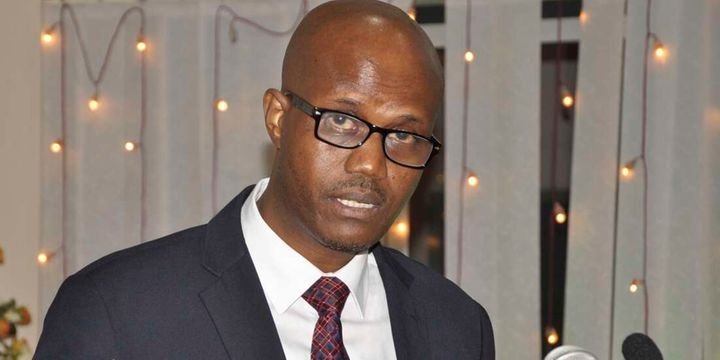Kenya has told member states of the East African Community that it intends to nominate a candidate to be the next Secretary-General of the bloc to take over from Burundi’s Liberat Mfumukeko.
The Nation learnt of the move on Tuesday as the EAC Council of Ministers gathered for a hybrid meeting yesterday to deliberate on the agenda for the Heads of State Summit due on February 27.
Sources told the Nation that current Cabinet Administrative Secretary for Foreign Affairs, Ababu Namwamba, was the most likely nominee for Kenya, even though about a dozen other contenders have expressed interest.
Besides Mr Namwamba, current Cabinet Secretary for East African Affairs Aden Mohamed, political scientist and former co-secretary of the Building Bridges Initiative Adams Oloo, and Sports Cabinet Secretary Amina Mohamed have been floated as probable candidates.
Wednesday, the 40th Ordinary Meeting for the Council of Ministers was discussing the proposed agenda for the Summit, the 21st under the East African Community.
“Priority for the EAC in 2021 includes holding the Council and the Heads of State Summit meetings to make crucial decisions on the secretariat, budget, appointment of judges, and infrastructure,” the EAC Secretariat said in a statement on the meeting.
Elephant in the room
But the elephant in the room is the appointment of the next Secretary-General as Mr Mfumukeko’s five-year term expires in April. Appointed on a rotational basis, member states often nominate their best talents who are then endorsed by the Summit of Heads of State.
Kenya had been expected to nominate its person but South Sudan last week wrote to the EAC while nominating Aggrey Tisa Sabuni, the country’s former Finance Minister, as its candidate. If appointed, it will be South Sudan’s first taste of leadership at the bloc since it joined in 2016.
However, there are two hitches: Juba is late on its membership payments and has not passed all legislation on free movement of people and the customs union.
A report of the EAC Secretariat for this year shows that South Sudan is the most indebted member of the East African Community. It owes $24.6 million in funding towards the main budget even though it should pay up to $32.4 million including this year’s dues. It should also pay $2.8 million to the Inter-University Council of East Africa and another $345,000 to the Lake Victoria Fisheries Organisation. The main budget usually funds the operations of the secretariat, the East African Court of Justice, the East African Legislative Assembly and other bodies dealing with specified fields.
Just last month, Juba said Kenyans and other east Africans travelling to South Sudan must get visas before travel, stopping visas on arrival.
For these reasons, Kenyan officials now argue that South Sudan cannot nominate a candidate since the country has not fully integrated into the Community, six years after they were formally admitted to the bloc amid civil war.
Kenya’s dues, on the other hand, are up to date, while other member countries owe smaller amounts.
Mr Mfumukeko was appointed to the top job in 2016 despite Burundi lagging behind in payments at the time. However, Rwanda and Kenya argue that the EAC needs a candidate from a committed member to rescue the Organisation from recent turmoil.
“One of the founding members of the Community has to take over this time, or else the Community will collapse,” said a diplomat familiar with the discussions.
“This is why Kenya must step up because it is a founding member and this is its turn.”
Full plate
The next Secretary-General will, however, have a full in-tray, including introducing programmes that will strengthen integration and reduce infighting seen under Mr Mfumukeko’s reign.
The next SG is also expected to have technical experience to negotiate trade agreements as well as maximise opportunities from those agreements with, say, the European Union or other blocs.
President Uhuru Kenyatta is expected to formally present the name of the Kenyan candidate once the Ministers agree on who goes next. Ahead of the Summit, the Mr Kenyatta and his team asked for views from private sector players.
The Secretary-General is the principal executive and accounting officer of the Community as well as the Secretary of the Summit and serves for a fixed period of five years. Mr Mfumukeko served despite his own President, the late Pierre Nkurunziza, boycotting summits after surviving an attempted coup in 2015 while attending one in Dar es Salaam.
Burundi also lagged on entering the One Network Area agreement, a deal that removes mobile network roaming fees for East Africans traveling in other member states, as well as habitually delaying in paying its dues.
However, his term was also marred by graft allegations at the Secretariat, low funding as members skipped paying dues and donor funding cuts.
Additionally, there was a general lack of movement as Summits were postponed and members wrangled over tariffs and political tensions. For instance, Burundi bickered with Rwanda over militia allegedly posing as refugees, while Rwanda and Uganda quarreled over spy games. Tanzania and Kenya had tiffs over tariffs while South Sudan had a civil war to deal with.
A Kenyan candidate, should Nairobi be selected, will have to deal with all these matters once in office.
Source: Nation Africa




